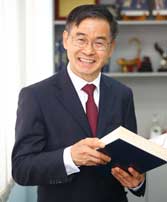
The Malaysian plastics industry is currently facing challenges in managing rising costs coupled with competition from manufacturers from the emerging economies, said newly elected President of The Malaysian Plastics Manufacturers Association (MPMA) Lim Kok Boon, who was speaking at the recent election of office-bearers for MPMA for the 2014-2016 term.
In 2013, the Malaysian plastics industry registered a total turnover of RM17.94 billion representing an increase of 4.5% from RM17.16 billion in 2012. Total direct exports increased by 6.5%, from RM10.05 billion in 2012 to RM10.71 billion, due to a recovery in the major markets, particularly the EU and Japan. Exports accounted for 60% of the total plastic products manufactured.
For the first quarter of 2014, the Malaysian plastics industry registered a growth of 13% from RM4.08 billion to RM4.62 billion and exports increased by 17% from RM2.46 billion to RM2.89 billion over the same corresponding period of last year.
"However, this growth is primarily due to cost pushed factors as manufacturing cost has increased by more than 10%, mainly due to the higher cost of resins, a 17% increase in electricity tariff and a 40% increase in direct labour cost caused by the implementation of the Minimum Wage," clarified the MPMA President.
Lim went on to elaborate that in this context, MPMA had in May 2014 submitted proposals to the National Wage Consultative Council (NWCC) to consider in the impending review of the Minimum Wage Order (MWO).
“The implementation of the minimum wage policy has adversely affected the plastics industry, particularly the SME plastics manufacturers,” said Lim.
"Other than the higher labour cost, plastics manufacturers are also suffering from the increase in electricity tariff, transportation, raw materials, packaging and other operational costs which have resulted in total manufacturing costs increasing by more than 10%,” elaborated Lim.
He went on to explain that things are made worst when the majority of the plastics manufacturers are unable to fully pass on the cost increase to the customers as the majority (60%) of the plastic finished products are exported. Malaysian exporters are facing difficulties in securing an increase in selling price given that international customers are highly price sensitive. In addition, many of the plastics manufacturers are Original Equipment Manufacturers (OEM). Their customers are mostly MNCs from the electrical & electronics, food & beverages, pharmaceutical sectors and national car producers and any price increase has to undergo a tedious negotiation process.
“Plastics manufacturers in Malaysia are facing difficulties in fully passing on the cost increase to their customers and this has resulted in many of our members suffering severe erosion in profits or incurring losses. Some companies may have to eventually fold up or reduce their workforce if the situation worsens. This would invariably result in job losses for the workers, which runs contrary to the objective of the MWO,” said Lim.
Based on the above reasons and the fact that the MWO was only fully implemented on 1 January 2014, MPMA has strongly recommended that the minimum wage of RM900 for Peninsular Malaysia and RM800 for Sabah/Sarawak be maintained.
“Given that most SMEs are already severely impacted by the minimum wage of RM900 per month and are struggling to make whatever adjustments that may be possible, any further increase in the minimum wage rate will likely force more SMEs to close down,” added Lim.
MPMA has also recommended that the existing 2-tier minimum wage policy, i.e. RM900 for Peninsular Malaysia and RM800 for Sabah and Sarawak be broadened into more regions and identified into different key industries.
“The existing 2-tier minimum wage policy is a too simplistic 'one size fits all' approach. The minimum wage rate should be further divided into different rates for workers in the rural and urban areas and in this regard, a comprehensive study should be carried out to identify the difference in the cost of living between states and rural-urban areas. This study should also identify the differences between job functions/structure in the various economic sub-sectors; for example, a service sector job is very different from the manufacturing sector,” said Lim.
Amongst the other proposals submitted to the NWCC were no time limit of the Reinvestment Allowance (RA) claimable period as well as the extension of off-peak electricity tariff to cover all day of Saturdays, Sundays and Public holidays for all categories of TNB users, both in the Tariff D and Tariff E.
"The introduction of the minimum wage policy has a great impact on manufacturing cost. Investments in new machinery and improvement on automation is necessary to increase productivity and reduce dependency on workers, particularly foreign workers. Therefore, the availability of RA would assist tremendously in maintaining the productivity and competitiveness of our manufacturing sector by enabling manufacturers to invest in new machines to achieve better efficiencies and be less dependent on labour," added Lim.
"To reduce the dependency on foreign workers, more machinery and equipment will have to be installed resulting in an expected increase in electricity cost. Hence, to assist plastics manufacturers mitigate the impact of the electricity hikes, the extension of off-peak electricity tariff to cover more days as well as to have this facility made available to SME manufacturers would help our members to continue to be globally competitive," elaborated the MPMA President.
Lim was re-elected as the President for the 4th Term. Also elected as the three Vice-Presidents were Pn Noraini Soltan Talib, Dato' Raymond Sng and CC Cheah with Eddie Fong as the Secretary-General. Lim has served as the MPMA President since 2006.
(PRA)



















